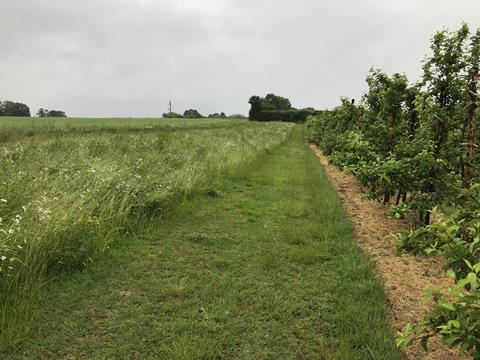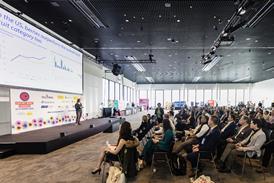Creating habitat for beneficial predators of harmful Rosy Apple Aphid has significant cost benefits for apple growers, a new study has found

Planting perennial flower strips in apple orchards could save growers almost £3,000 per hectare a year by reducing the numbers of Rosy Apple Aphid (RAA).
Researchers at the University of Reading tested flower strips in three commercial apple orchards over a period of two years.
The study was specifically looking at where it was most cost effective to place the flower strips, including standard grass headland, land that could be used for producing apples and a strip in the centre of an orchard.
Results published in the Journal of Agricultural Economics found that flower strips, which create habitat for beneficial predators, provided significant financial benefits to growers compared to standard headlands, particularly in a year of high aphid infestation.
The number of trees with apples damaged by RAA fell from 80 to 50 per cent and, even in years with fewer pests, the flower strips still paid for themselves when planted at the edge of orchards by reducing crop loss and pesticide applications.
In a year with low infestation, the study found flower strips on the headland could be a positive financial investment. If non-crop land was not available, a flower strip in the centre of an orchard could offset most costs while also providing yield benefits.
“Flowers attract helpful insects that work hard to keep pests under control. Farmers could save money while boosting biodiversity and letting nature do some of the heavy lifting in looking after their crops,” said lead author Dr Charlotte Howard. “There’s still more to learn about all the benefits of planting flower strips,” she added.
The strips provided habitat for beneficial pollinators such as ladybirds, hoverflies and lacewings that predate on RAA. The aphid is usually controlled by insecticides and can lead to losses of up to 80 per cent in untreated orchards.
Putting flowers in the right place was more effective at boosting orchard profits than other factors, including government payments for planting flowers.
The research was conducted by University of Reading, NIAB East Malling, Cranfield University and Syngenta, via its FoodBiosystems Doctoral Training Partnership.






